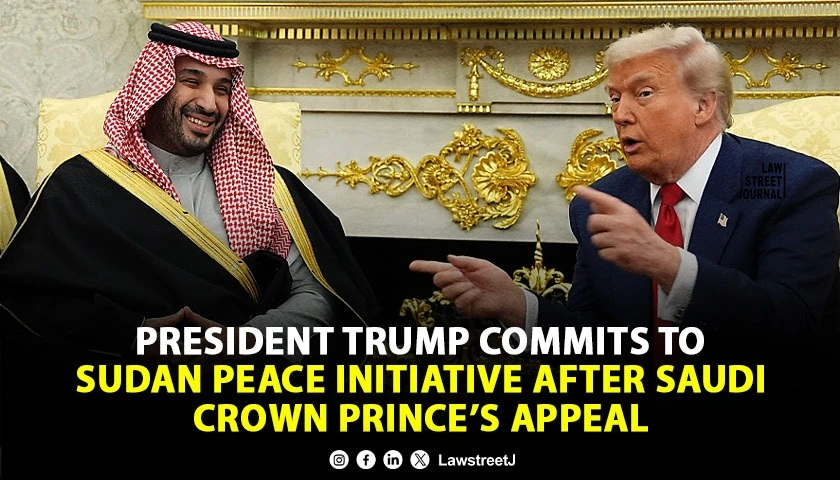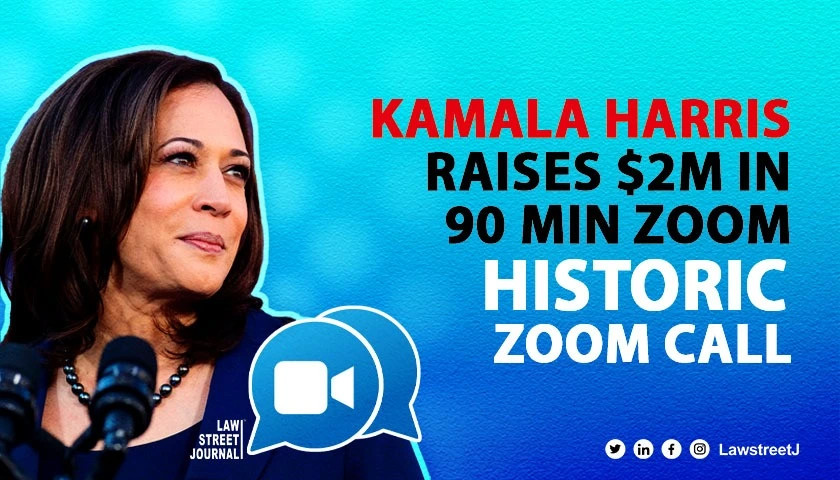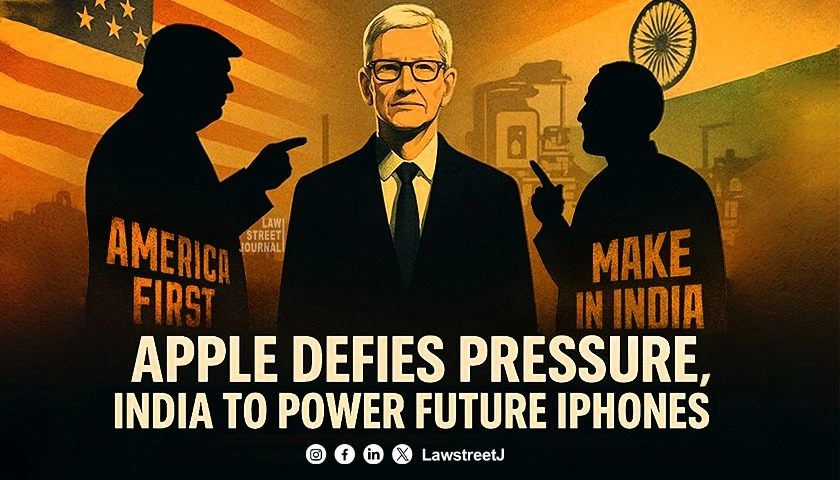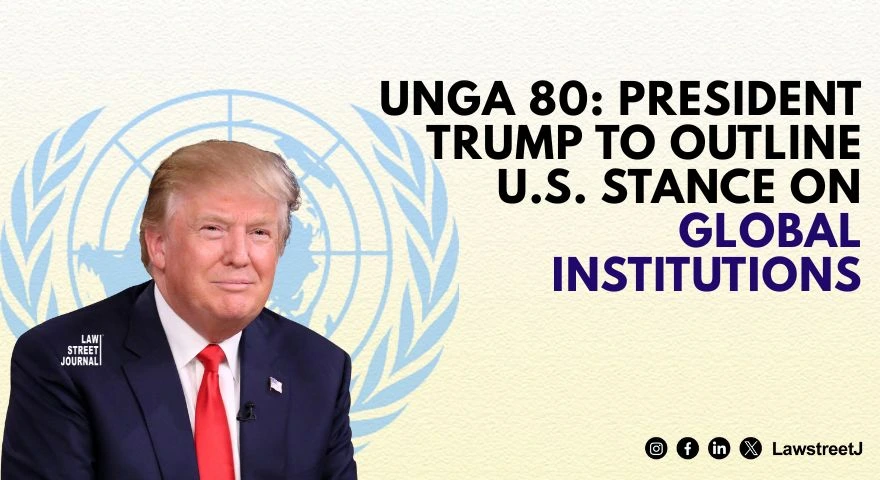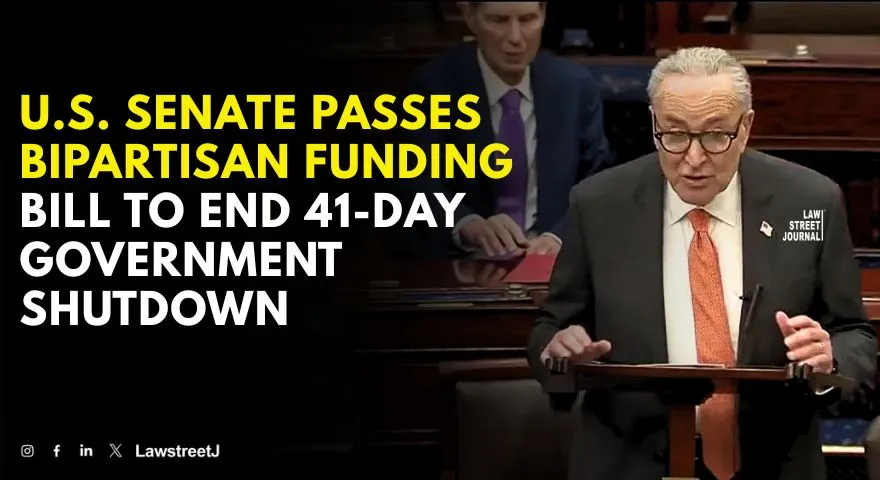New Delhi: U.S. President Donald Trump has pledged formal support for a new peace initiative aimed at ending Sudan’s ongoing civil war, following a direct appeal from Saudi Crown Prince Mohammed bin Salman. The announcement marks a notable shift in U.S. foreign policy engagement in the Horn of Africa and carries significant diplomatic, legal, and humanitarian implications.
Saudi Influence Prompts Change in U.S. Approach
On November 19, 2025, President Trump announced that the United States would begin active involvement in efforts to resolve the conflict in Sudan. The commitment followed a discussion with Crown Prince Mohammed bin Salman during the U.S.–Saudi Investment Forum held at the Kennedy Center in Washington, D.C., one day after the two leaders met at the White House.
According to official statements, Crown Prince Mohammed urged the United States to intervene, warning of the scale of the humanitarian crisis and describing engagement in Sudan as “the greatest thing you can do” in terms of global impact. President Trump stated that Sudan had not been a priority before the meeting but confirmed that the administration would “start working” on the issue immediately.
Sudan has faced continuous armed conflict since April 2023. United Nations estimates indicate more than 40,000 deaths and over 7 million displaced people since the start of hostilities. The conflict involves the Sudanese Armed Forces (SAF) and the paramilitary Rapid Support Forces (RSF). Reports from humanitarian organizations cite widespread violations, including indiscriminate attacks, sexual violence, and interference with humanitarian deliveries. The renewed U.S. attention reflects a diplomatic opening created by Saudi Arabia’s involvement and the growing scale of the humanitarian situation. Officials have confirmed that the White House will coordinate with regional governments and multilateral organizations to support mediation between the warring parties.
Legal and Humanitarian Frameworks Shaping U.S. Engagement
U.S. involvement in Sudan operates under domestic and international legal frameworks that govern foreign intervention, humanitarian assistance, and sanctions. Under the Foreign Assistance Act, the U.S. government may restrict or condition aid based on human rights considerations. The Global Magnitsky Act allows the United States to impose sanctions on individuals and entities responsible for human rights abuses, corruption, or other violations. The State Department has previously issued sanctions targeting RSF figures involved in abuses in Darfur and other regions.
Legal experts note that any U.S.-supported peace effort must align with obligations under international humanitarian law, including the Geneva Conventions, which outline protections for civilians and govern conduct during armed conflict. U.S. agencies must also comply with the Leahy Laws, which prohibit assistance to foreign military units implicated in gross human rights violations. These measures guide the parameters of U.S. engagement with both the SAF and the RSF as negotiations progress.
Officials have stated that regional cooperation will form part of the approach. The administration plans to work alongside Egypt, the United Arab Emirates, and Saudi Arabia in mediation and coordination roles. The African Union and the Intergovernmental Authority on Development (IGAD) are expected to participate in diplomatic efforts as part of an established regional framework for conflict resolution.
The role of humanitarian agencies is central to the initiative, given the displacement figures and scale of reported violations. The United Nations and international aid organizations continue to document shortages of food, medicine, and access to safe areas, citing persistent restrictions imposed by both sides. U.S. participation may include support for humanitarian corridors and increased diplomatic pressure to ensure aid delivery.
Geopolitical and Strategic Considerations
Sudan’s geographic position makes its stability significant for regional and international strategic interests. The country borders the Red Sea, a major global shipping route, and serves as an entry point to sub-Saharan Africa. Prior to this development, U.S. engagement in Sudan consisted largely of humanitarian aid, targeted sanctions, and diplomatic statements. The new commitment signals expanded involvement in regional stability and conflict resolution.
Saudi Arabia’s role highlights its influence in regional diplomacy. Crown Prince Mohammed bin Salman has increasingly positioned the Kingdom as a mediator in African and Middle Eastern conflicts. The appeal to Washington aligns with Saudi efforts to shape outcomes in regional crises. During the U.S.–Saudi Investment Forum, officials from both countries reaffirmed cooperation in areas including security, counterterrorism, and economic partnerships.
President Trump’s announcement reflects his administration’s focus on showcasing international peace initiatives. The statement follows broader U.S. discussions with regional partners about reducing conflict and supporting negotiations. Analysts note that the commitment may affect U.S. engagement in multilateral institutions such as the United Nations Security Council, where Sudan has been a recurring topic of discussion.
President Trump’s decision to support a Sudan peace initiative after a personal request from Crown Prince Mohammed bin Salman marks a significant diplomatic development for U.S. involvement in the Horn of Africa. The commitment carries legal, strategic, and humanitarian considerations and introduces new dynamics in regional mediation efforts. The coming period will determine how the United States implements its role, how regional partners coordinate their involvement, and how conditions on the ground in Sudan respond to the renewed international attention.

